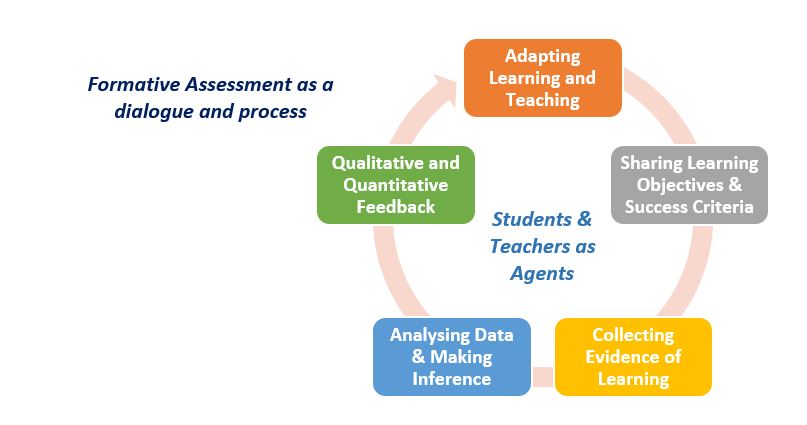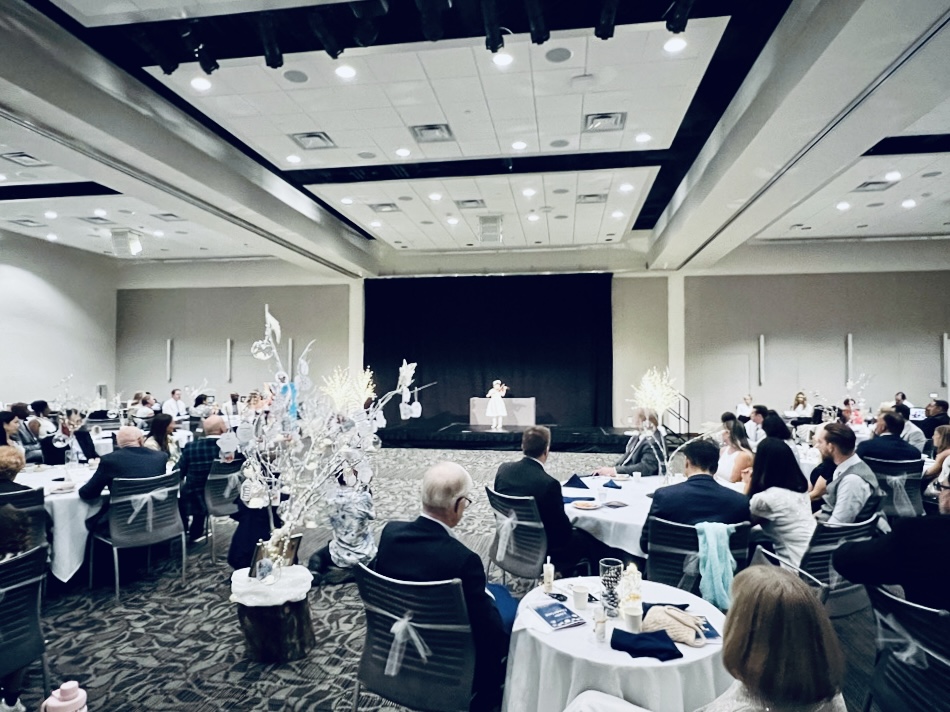Assessment is central to the International Baccalaureate (IB) goal of thoughtfully and effectively guiding students through the understanding of concepts, the acquisition of knowledge, the mastering of skills, the development of the IB learner profile attributes and the decision to take responsible action.
“The purpose of assessment is to inform learning and teaching. It involves the gathering and analysis of information about student learning to inform teaching practice. It identifies what students know, understand and can do at different stages in the learning process”. (Ref:International Baccalaureate Learning and Teaching, p. 67)
How we assess
Assessment at Creation Village World School follows the “Backward Design” model by Wiggins and McTighe (2003) and is designed in three stages:
-
Identify desired results
-
Determine acceptable evidence
-
Plan learning experiences and instruction
Assessment at the Primary Years Programme (PYP)
At the Primary Years Programme (PYP), student learning is promoted through planning and refining the teaching and learning process to meet the needs of individual or group needs. At Creation Village World School, teachers use assessment to measure progress in learning, modify instruction as needed, and monitor student progress over time.
Assessment in the learning process:
-
Pre-assessment takes place at the beginning of instruction to assess students’ prior knowledge and experience, before embarking on new learning. Examples of pre-assessments include pre-tests, thinking routines, provocations, or anecdotal records
-
Formative assessment is woven into the daily learning and provides both teachers and students with useful feedback on how well students are understanding and applying the new concepts, skills, and knowledge. The tools and strategies used for formative assessments may include (but are not limited to): Project Zero Visible Thinking Routines, observations, written anecdotal notes, learning continuums, quizzes, checklists, oral presentations, exit slips, graphic organizers, self-assessments and class discussions.
-
Summative assessment takes place at the end of the teaching and learning process, and gives students opportunities to demonstrate what has been learned. Examples of summative assessments include (but are not limited to): open-ended tasks, performance assessments, tests, reading assessments (Fountas and Pinell), writing tasks (6 traits+1), math assessments and end of the unit celebration of learning.
Assessment at the Middle Years Programme (MYP)
Within the Middle Years Programme (MYP), assessments serve primarily as feedback for student learning. As such, we extend the continuum of learning from the PYP and into our Middle Years.
MYP assessment focuses on tasks created and marked by classroom teachers to make judgments about student achievement. These tasks are rigorous and embrace a variety of assessment strategies. MYP teachers assess objectives using prescribed criteria for each subject group, provided directly from IB in each year of the programme from grade 6 to grade 10.
Next year, as our school enters into 10th grade, each MYP student in the Year 5 class will explore an area of personal interest and develop a personal project. This will provide our students the opportunity to consolidate their learning and develop important skills as lifelong learners. This project formally assesses students’ approaches to learning (ATL) skills for self-management, research, communication, critical and creative thinking, and collaboration, and is formally assessed by the IB. Further, it builds on the students’ project-based learning from PYP Year 6 (5th Grade) Exhibition to our 8th Grade Community Project and the ongoing Service Learning which occurs in each year of the MYP.
As our school continues to grow, we are continuing to develop our MYP assessment model within the IB framework, enabling our students to be ready for 11th and 12th grade and beyond. Our Middle Years Programme therefore focuses on four types of assessments:
-
Diagnostic Assessment - Assessment for Learning
-
Establishes a baseline for pre-existing knowledge before a unit
-
Provides data on students’ knowledge, skills and strengths before a unit
-
Helps teachers plan for the needs of that particular class, at this particular time
-
Is not graded
-
Diagnostic assessments inform and improve the teaching process.
-
-
Formative Assessment - Assessment as Learning
-
Monitor progress in real time
-
Ongoing and fully integrated into the curricular program
-
Used to identify strengths and weaknesses, and adjust instruction accordingly
-
Provide feedback to improve student learning over time
-
Formative assessments inform about the current level of skills, knowledge, and understanding.
-
-
Summative Assessment - Assessment of Learning
-
Used after students have practiced, applied, and received meaningful feedback
-
Evaluated using published criteria that the students know and understand
-
Directly relate to objectives and standards for the assessed content and skills
-
Graded and recorded; contribute to final term grade
-
Summative assessments reflect achievement levels at the end of a topic or unit of study.
-
-
Standardized Assessment - Assessment using external comparison
-
Measures skill development compared to a large sample of students
-
Administered at set intervals to measure progress over time
-
Identifies students who need additional support or opportunities to advance
-
Used in conjunction with school-based assessments to inform instruction
-
Standardized assessments measure student progress in developing academic skills over time.
-
As Albert Einstein stated, "everything that can be counted does not necessarily count; everything that counts cannot necessarily be counted". — (Albert Einstein/William Cameron 1963). Providing multiple views into our students' learning journey helps us to, together, navigate their development, taking the model of Jesus to keep increasing in wisdom and stature, and in favor with God and people.
We look forward to learning and growing together this year in God’s community.
Best regards, saludos, saudações,
Sagrario Arguelles and Marcos Redondo
Head of the Primary Years Programme and Dean of Middle Years





